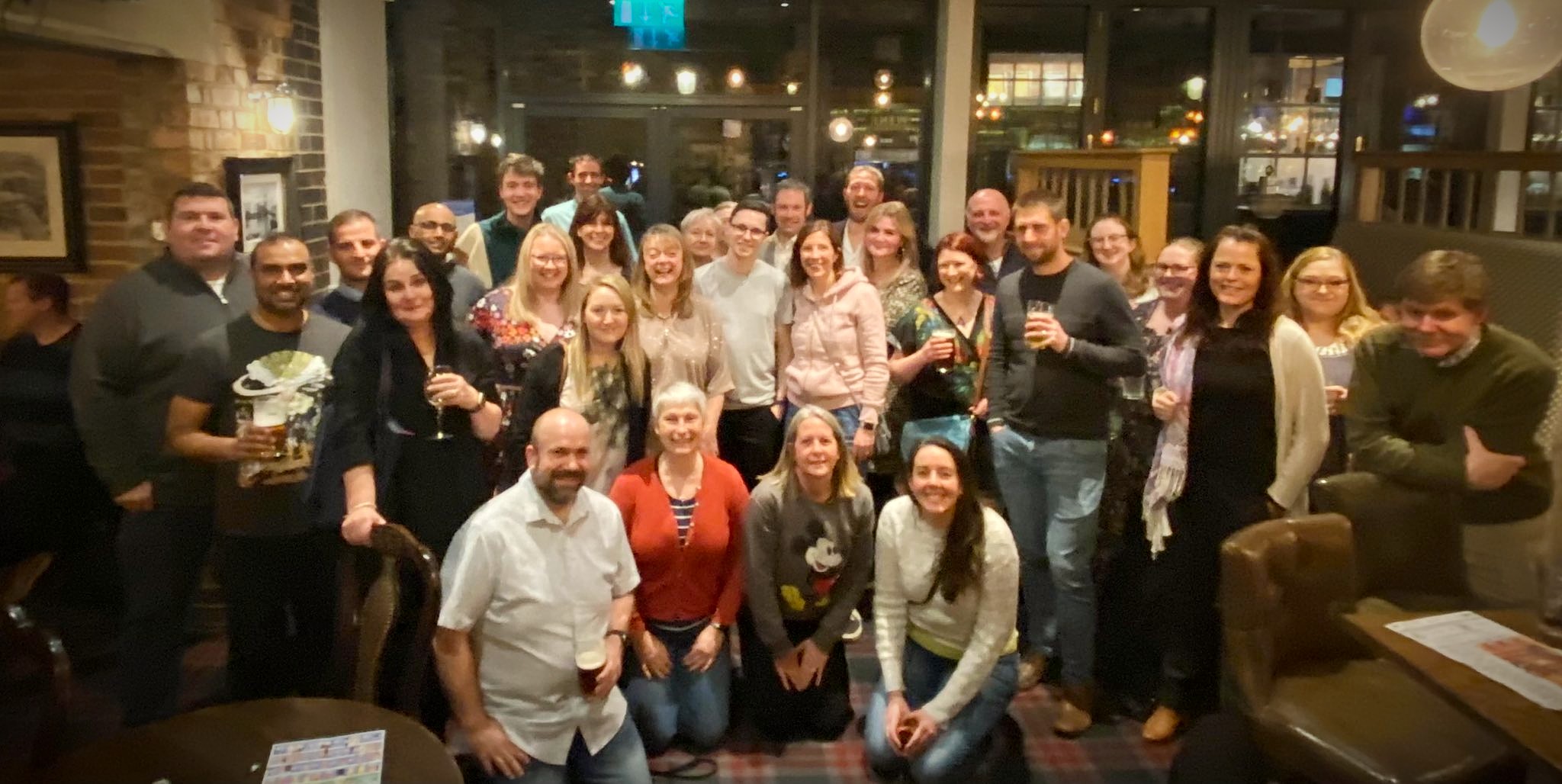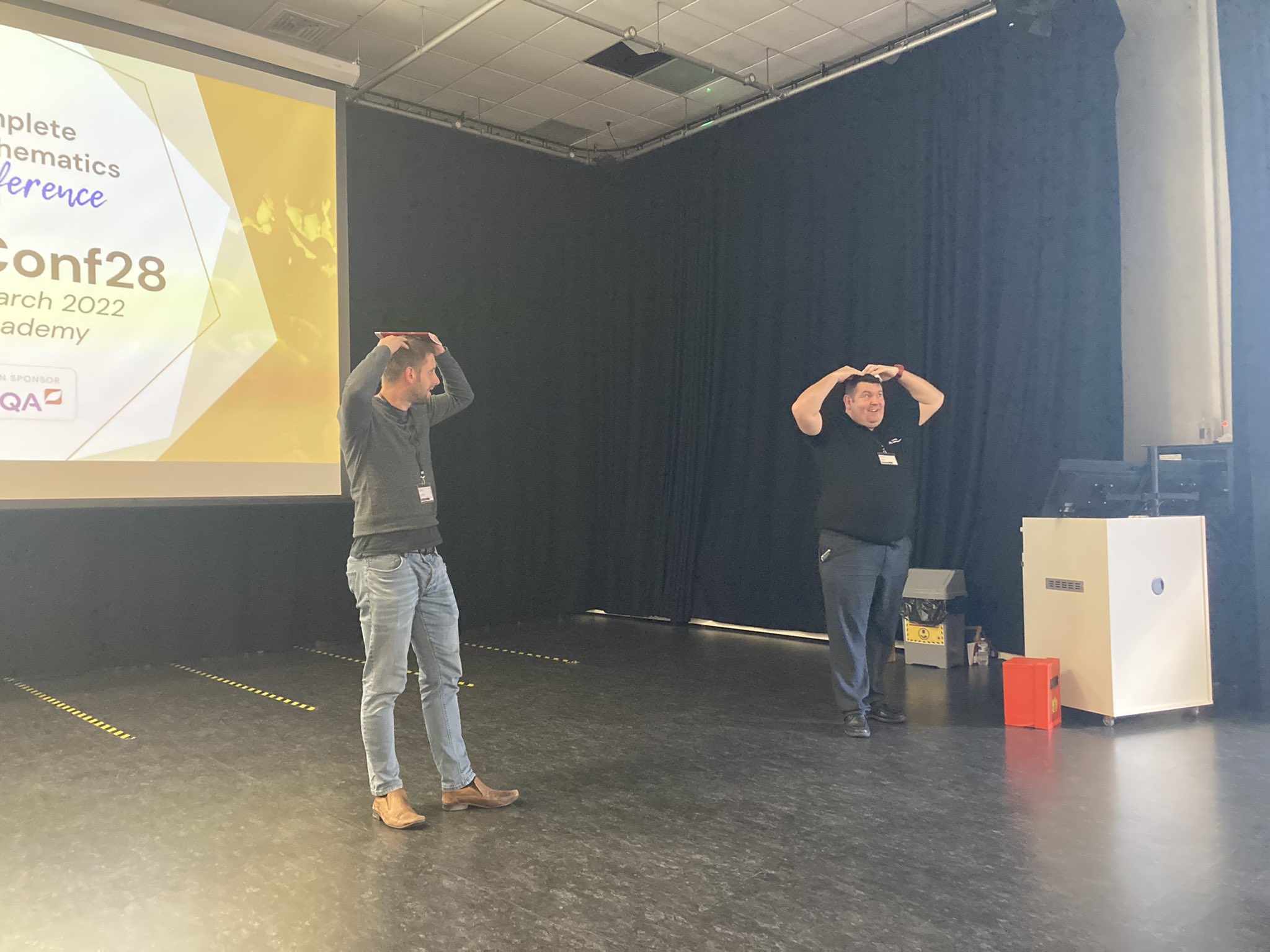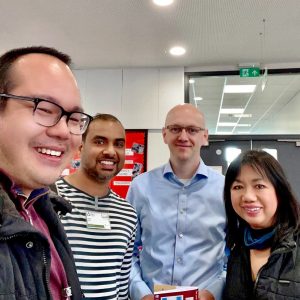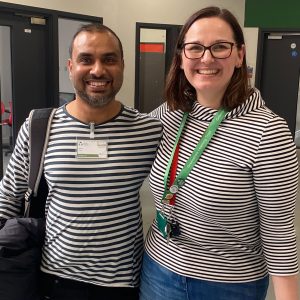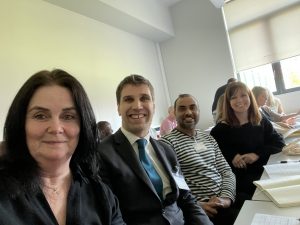La Salle Education are the UK’s largest mathematics teacher professional development providers. Their conferences are attended by around 400 maths teachers, trainers, suppliers, academics, tutors and anyone who lives and breathes maths teaching.
#MathsConf28 was an absolute buzz : from Don’t stop interweavin’, going against and along the grain of grids, BIDMAS blues, Robert Recorde’s era of the rock symbol \m/ and jammin’ on jamboard.
Pre-conference Friday drinks
The Friday night social felt like a pre-pandemic social we knew and loved, a good turnout. I met many teachers and tutors for the first time, some that I got to know very well online and some I just met at the pub. The online conferences and networking over the last two years had drawn a lot of new teachers in.
The drinks and chat flowed until past midnight and for a rare first time, #TeamMathsconfParty took an early night instead of going on to a nightclub.
On to the Saturday.
Conference introduction – first #mathsconf for most and hands on the head game
Mark McCourt (CEO of La Salle), Andrew Taylor (Head of AQA maths – main conference sponsors) and Rhiannon Rainbow (on behalf of Gloucester Academy) opened the day. Mark showcasing the achievements of La Salle in not only providing incredible CPD for maths teachers but the TUTOR platform that is directly helping pupils.
A quick show of hands revealed that most (> two-thirds) delegates were attending their first ever in-person mathsconf.
Rob Smith and Jonathan Hall entertained the masses with a “more than or less than game” where Rob quoted a fact with numbers “E.g In 2018 was Ed Sheeran worth more or less than Daniel Radcliff?”. Everyone was standing up and those who thought ‘more than’ would put their hands on their heads, ‘less than’ on their waist. If you guessed wrong you sat down, if you got it right you remained standing. Cue a few more rounds of this and the last three people standing won prizes. Neat group game and a perfect way to warm up for the day.
Workshop 1 : Reviving and Rethinking the Structured Variation Grid
Delivered by Jonathan Hall (aka mathsbot – shameless plug to his site as I am a Patreon) his workshop launched this brand new resource on the site. He mentioned the origin of this variation grid by Anne Watson and John Mason. And an original flash based app with the same purpose.
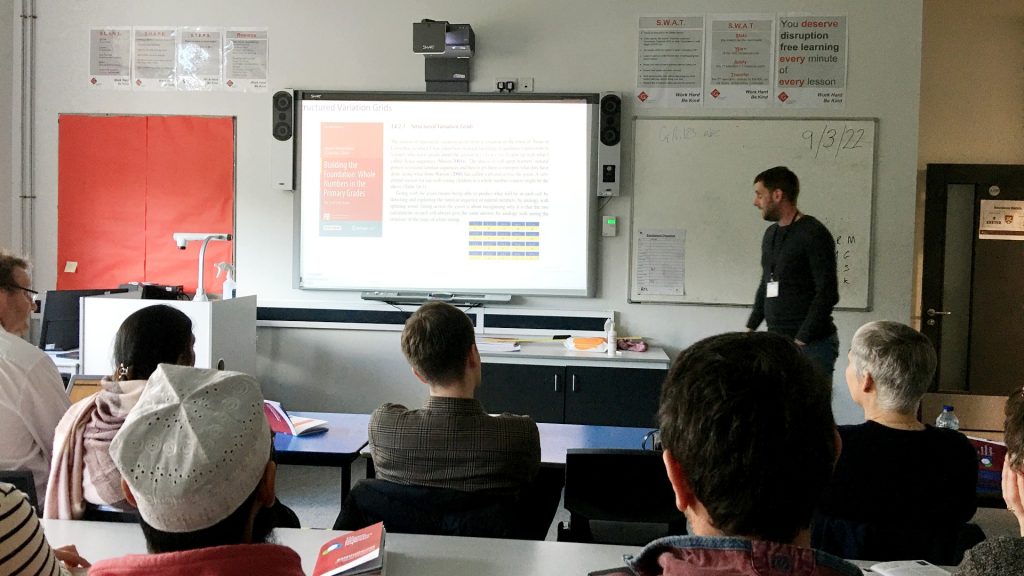
He showed us the original idea of ‘going with the grain’ and ‘against the grain’ both horizontally and vertically on a structured grid (spreadsheet like cells). Where the task changes just a little on each cell in line with variation theory. This is such a neat idea and hones into the human instinct of pattern prediction and filling in missing information (like crosswords for example). I would encourage to explore his site and the grids.
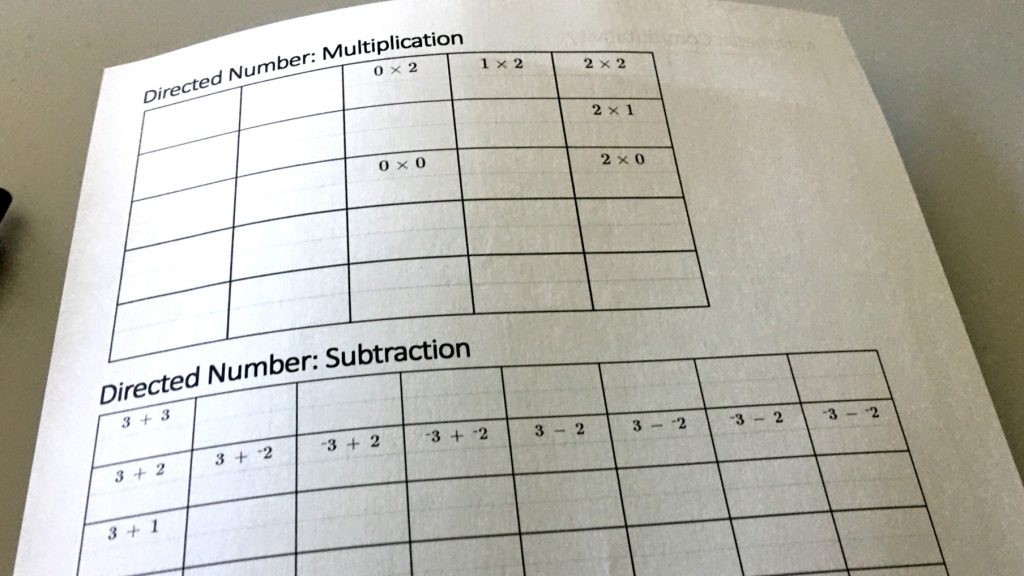
Workshop 2 : Don’t Stop Interweavin’ (Hold On to That Feelin’)
For me this was the best title for a mathsconf presentation, ever. And it just goes to show how you can bring our own personality into a mathsconf workshop. Playing into his jovial style of punnage, maths history and very well thought out tasks (which don’t shy from challenge and a lot of practice), Nathan Day opened this session with a call and response singalong. To the very title of this workshop with the melody of the Journey song. I was all in.
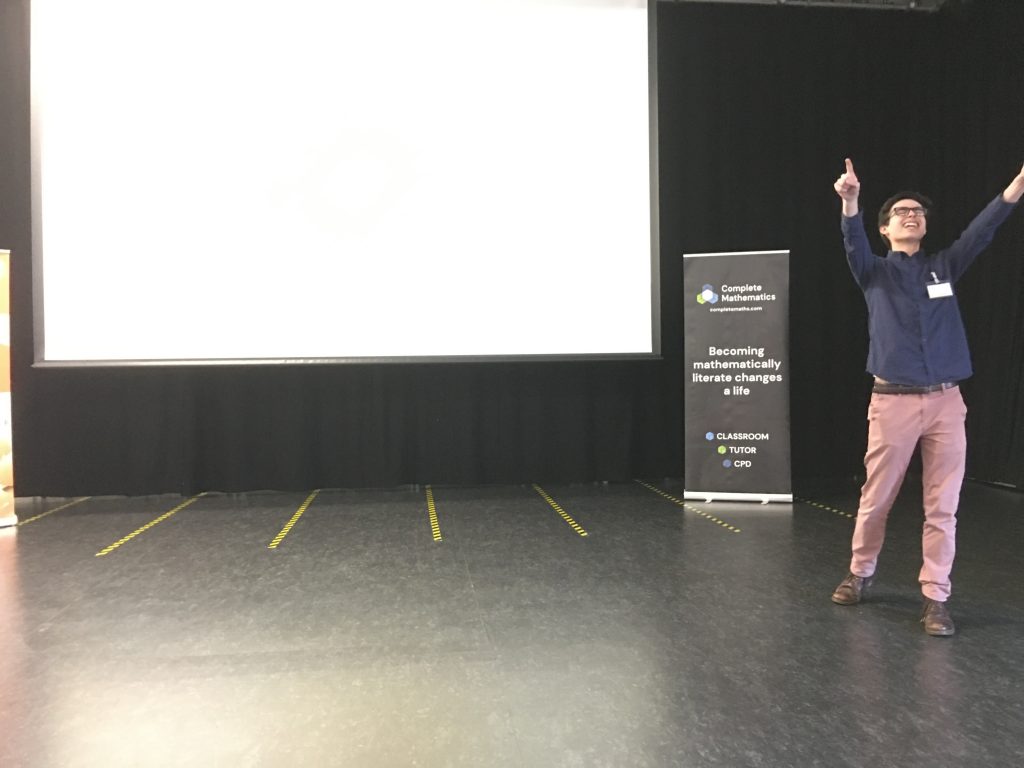
Nathan runs the excellent website interwovenmaths.com which does exactly what it says on the tin. Connecting different areas of maths up into intelligent tasks. For example, I was covering the fraction operations with a Year 8 tutee, who was then covering linear sequences at school and wanted help with that too. So I interweaved the two and did fractional linear sequences, with negative numbers thrown in for bonus. This is the general idea behind interweaving.
Exam questions like Hannah’s sweets interweave topics anyway to test thinking flexibly and the ability to cross connect ideas in different areas. Very important for young mathematicians in developing problem solving skills. The interweaving does not have to fit the real world. We got to see some SURD money examples, money can be irrational as well.
We got to brainstorm and create our own intervowen questions as well, tasks at the heart of the workshop. Interweaving should be carefully considered, not just done for the sake of it, appropriate to where pupils are in their mathematical development and tasks should be cognitively demanding.
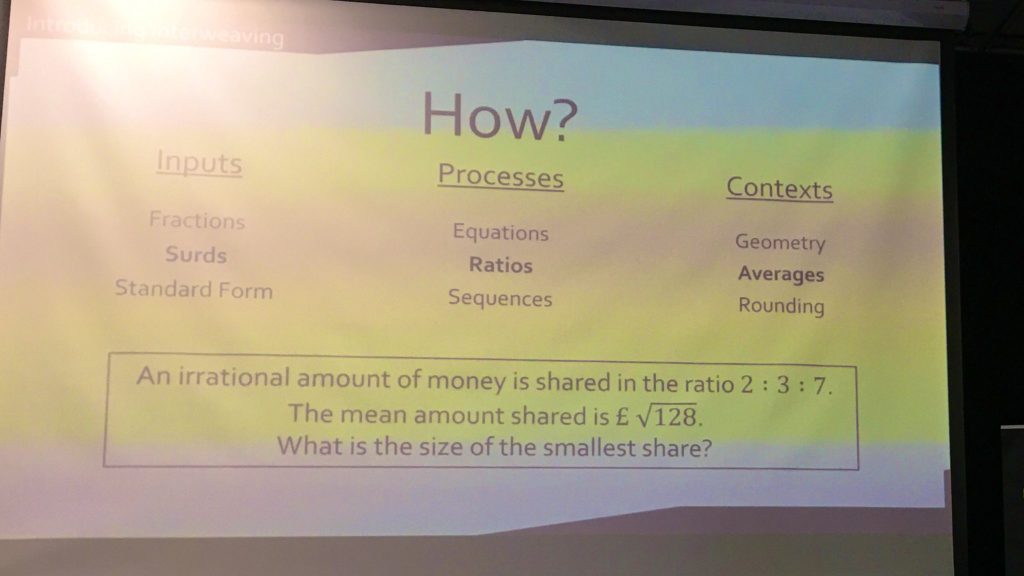
For more details, Nathan has not only released the full presentation PDF but there’s detailed commentary on this twitter thread. Do check it out and explore the website for tasks.
Workshop 3 : Conceptual Maths
Calculation isn’t the important bit
This quote was on nearly every slide and summed up such an important idea behind being a mathematician. Calculation (to get some sort of final answer) is not the most important bit.
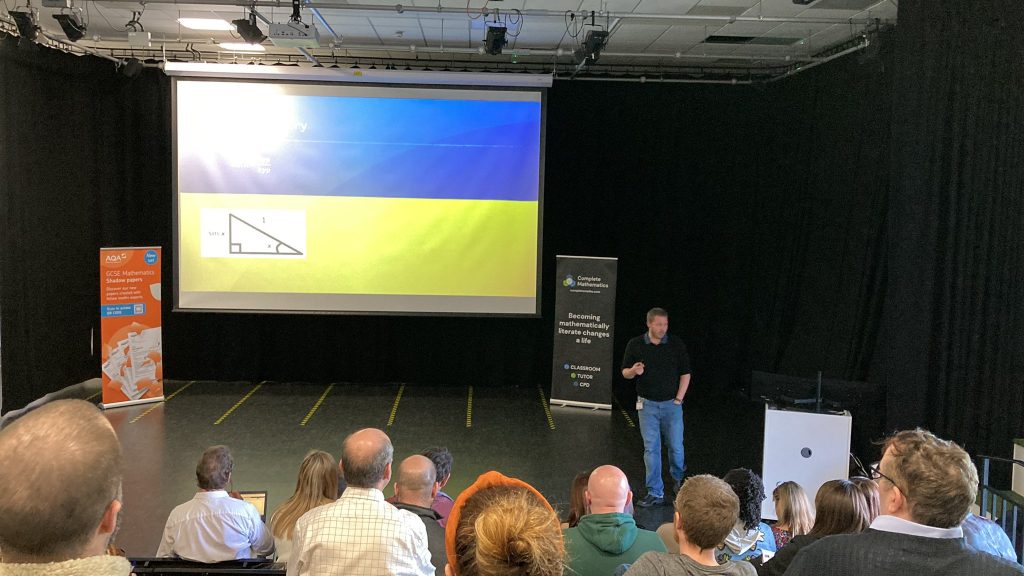
This workshop by Pete Mattock was on his 40th birthday. Choosing the day to present and share his knowledge to fellow teachers. Not only that but the colours of the slides were of the Ukrainian flag in solidarity with the nation.

Pete went straight into busting BIDMAS/PEMDAS etc. followed by some neat tasks on the distributive field axiom (distributive property of multiplication over addition).
We then moved on to Trigonometry with the wider context of similar shapes in triangles. There were some neat tasks for those as well.
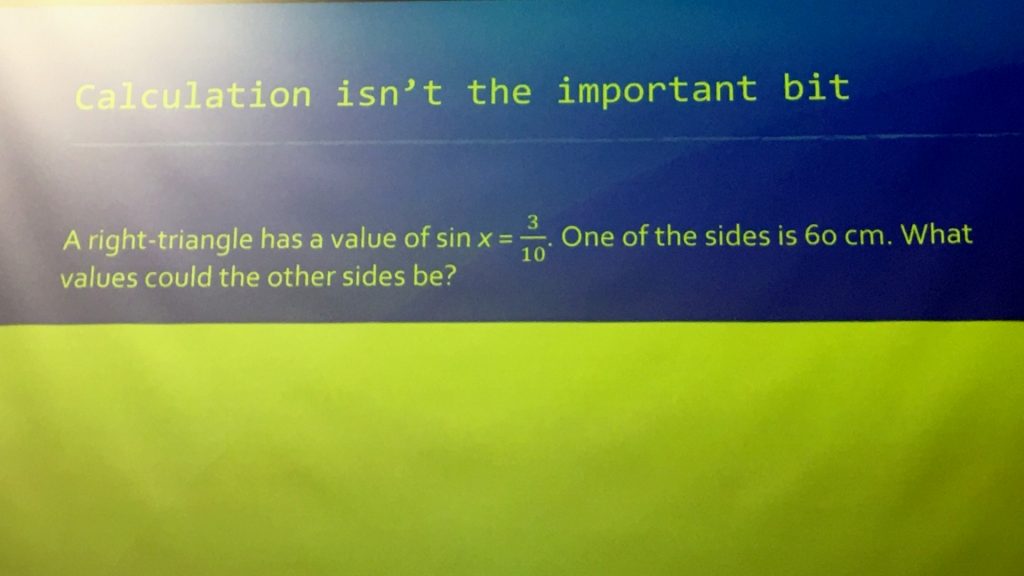
Pete will be releasing a book with the same title ‘Conceptual Maths’ and his YouTube channel is well worth checking out. I cannot wait to host him for more episodes of #MathsChatLive and keep the conversations going.
Workshop 4 : All Things Being Equal: The Life and Times of Robert Recorde
This was the first time I went to a workshop by Gareth Evans. For those who know me, I am a little obsessed over the equals sign. All my tutees get to hear the story of the origin of that sign from Robert Recorde’s quote in his book.
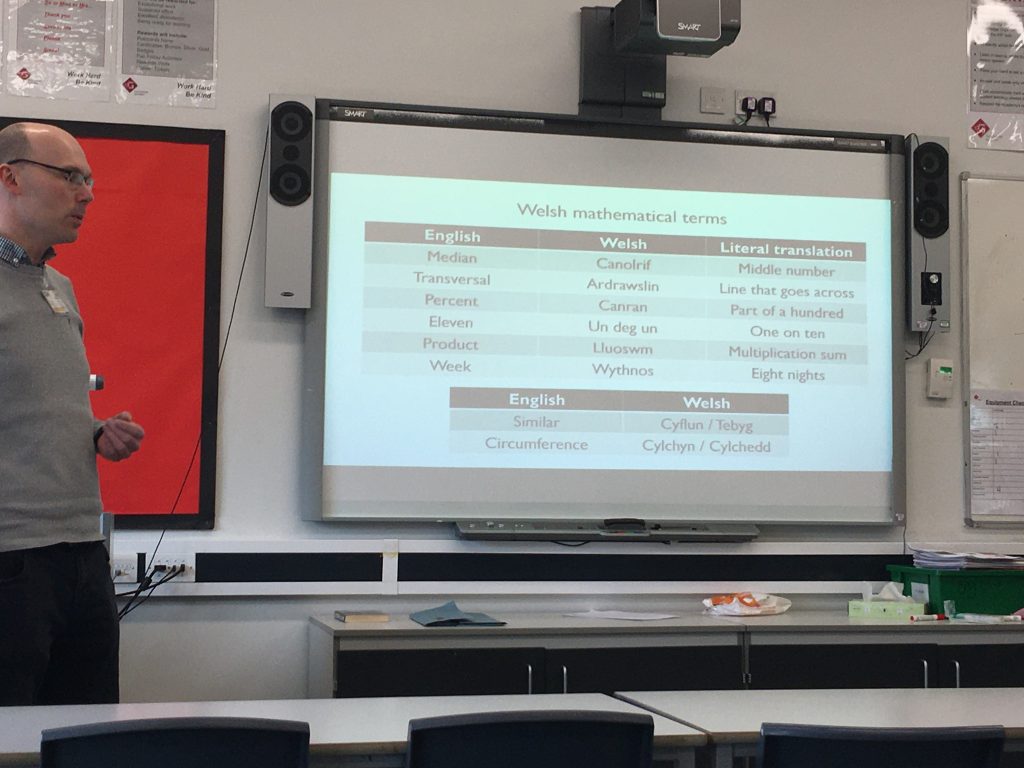
But I did not have a more in depth history of Recorde’s life and the context in which he existed. It is no exaggeration to say that by writing the first ever English language books of mathematics, he played a huge part in shaping the type of mathematics symbolism familiar to us today. He was as Emma Bell says in her blog, a trailblazer.
The hand symbols used to represent numbers by the traders in the Welsh docks was pretty cool. For me (and the rest of the room), the symbol of 4 (the rock symbol or the devil’s horns \m/) was a an amusing moment.
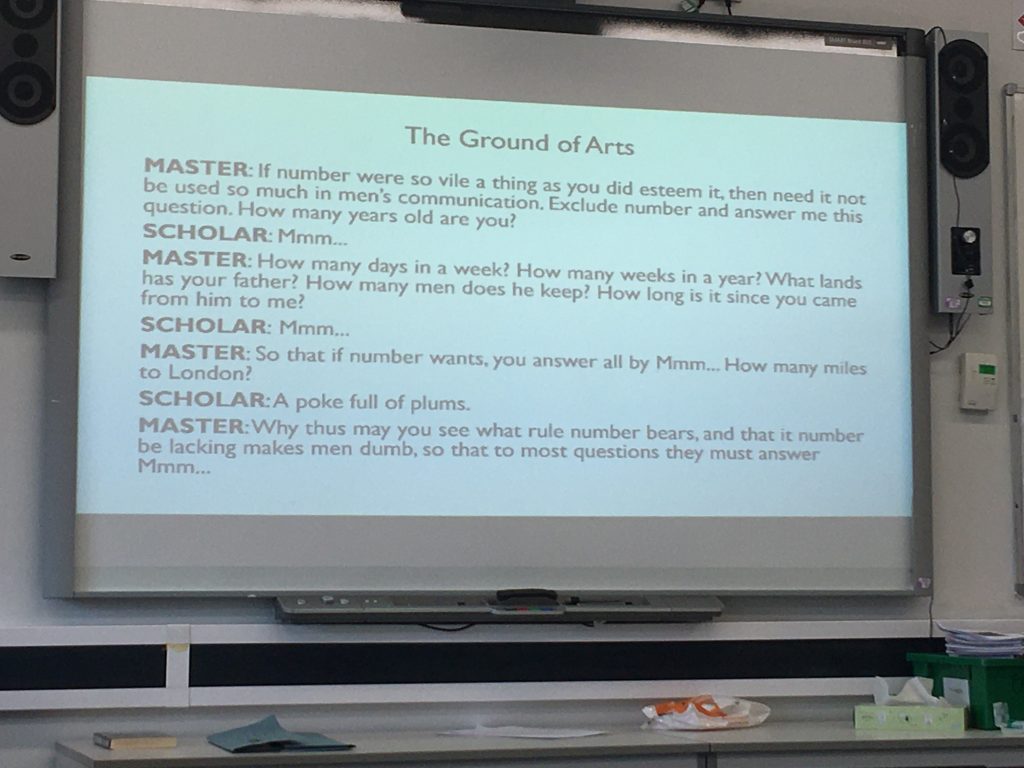
Recorde’s life, along with his books and the era in which he existed was narrated beautifully. While La Salle have come up with TUTOR, it was really Robert Recorde who came up with the first form of scaleable remote tutoring with a master and scholar type narrative in his books. With lots of amusing story like language in them, at times even berating his imaginary tutee!
We also saw a neat multiplication algorithm that requires pupils to know just the multiplication facts of up to 5 x 5. That used to suffice in those times. To work out the rest of the multiplication facts (up to 9 x 9), the algorithm and its proof make for some great mathematics. (Video and more detailed method coming up here later – for now check out this tweet)
Workshop 5 : Old Yellow Bricks: Developing an Evidence Informed Approach to Concrete Resources in the Mathematics Classroom
I am a big fan of Kieran Mackle’s podcast (+ book) ‘Thinking Deeply About Primary mathematics‘ and the Discord community he has set up. Primary mathematics is the absolute bedrock of the subject and I am so glad that more primary practitioners are running workshops at mathsconfs. I hope to see even more in the future.
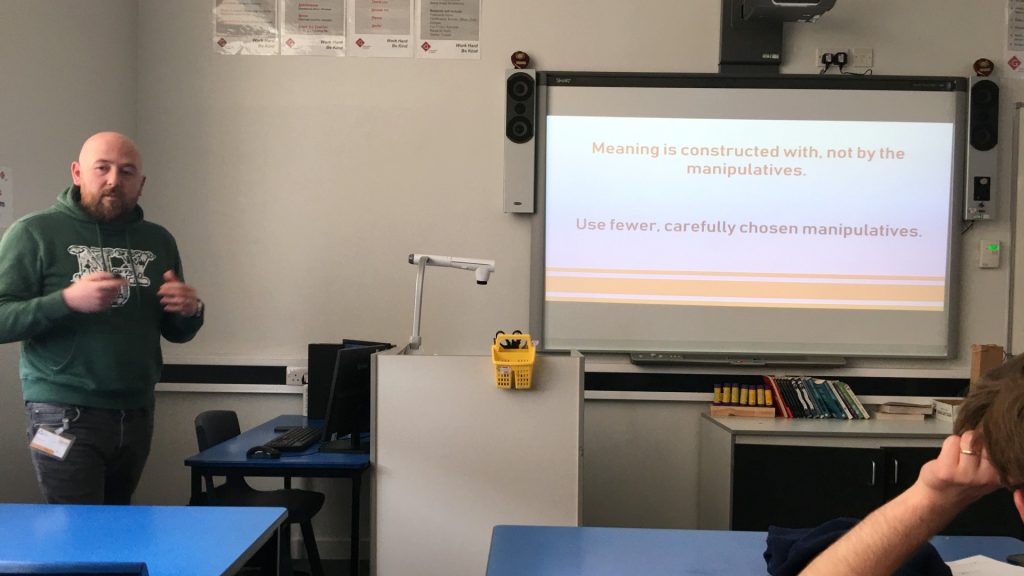
I use manipulatives and multiple representations regularly, so this workshop was going to be totally up my street. Using manipulatives always comes with a health warning and for all the right reasons. Their use is not as straightforward and should be carefully considered as to how they will bridge from pupils’ current understanding to bring about new knowledge. Now I’ve always felt that to be the case but what Kieran did was to evidence that with some well referenced papers and studies. And one of the quotes that “meaning is constructed with, not by the manipulatives” was a great reminder.
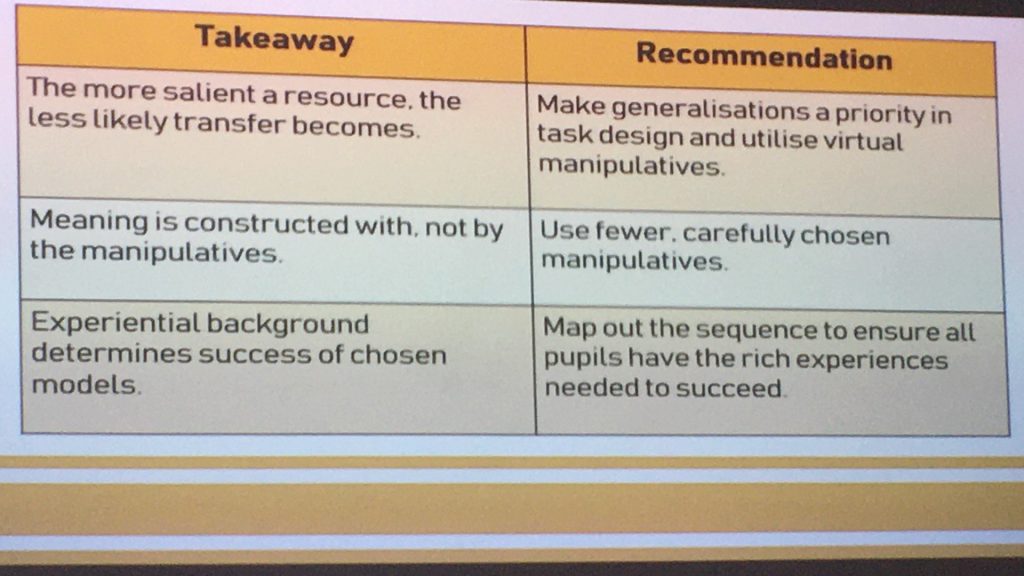
Kieran also ran a Jamboard exercise where he got delegates to move blocks and virtual cuisenaire rods on their own jamboard slide using their mobile phones. Instant group feedback and interaction appearing live on the presentation itself. Very neat indeed!
I definitely encourage teachers to use manipulatives. Their effectiveness can only be experienced by teaching. Only by testing, tweaking, adjusting and refining how you use them in the real world will you get the feedback and feel to understand them. There is also a great community of teachers you can check in and get support from. Along with blogs of teachers learning how to use them.
Final thoughts
When Mark McCourt was on #MathsChatLive earlier this month, he remarked that of all the things he has done in the last ten years, mathsconf was what he was most proud of. And for good reason. It’s an incredible community that attracts those who love teaching mathematics, a place where I feel at home. When teachers go back to their daily teaching from a mathsconf and apply new ideas, they are impacting thousands of pupils straightaway, and even more in the long run.
Like everyone else I was limited to just 5 workshops on the day while missing many other great ones. It was suggested that workshops should also be streamed live and recorded. But being a streaming geek myself, I know how complex it would be to stream an entire in-person conference. It would require a lot more hardware and a production team. There are easier options like recording just audio and listening later with the PowerPoint presentations that delegates already receive. I’m sure in time the conferences will evolve naturally to cater for this as the recordings are absolutely invaluable.
On a final note, the conversations around #MathsConf28 will continue to reverberate. And I definitely want to play a role in this. So if you ran a workshop and want to discuss it more, do DM on twitter or email. I am always looking for panelists, following the La Salle ethos that anyone teaching maths in any capacity should share and articulate their ideas. We are intellectuals, we have theories and we need to learn from each other.
See you at #MathsConf29, Kettering here we come.
